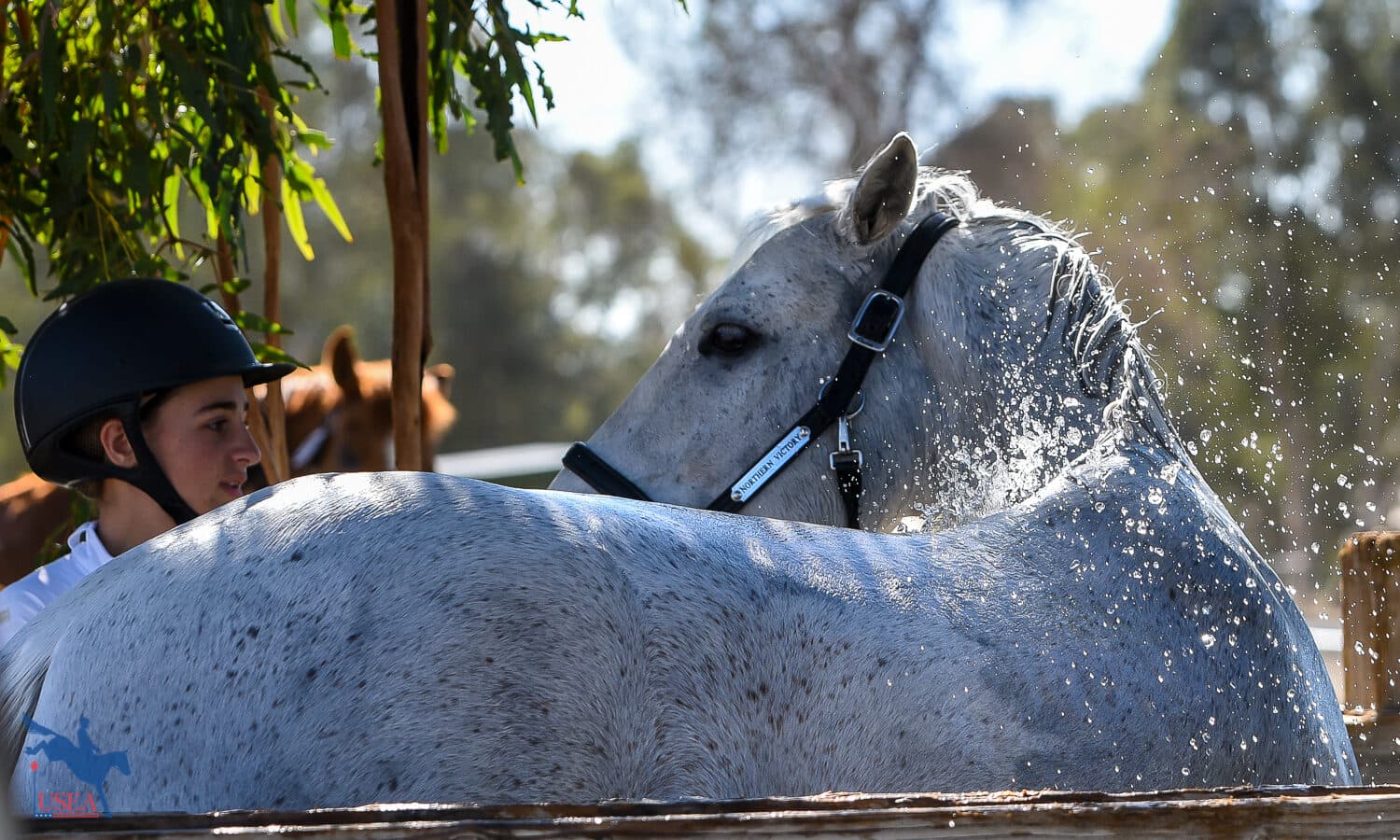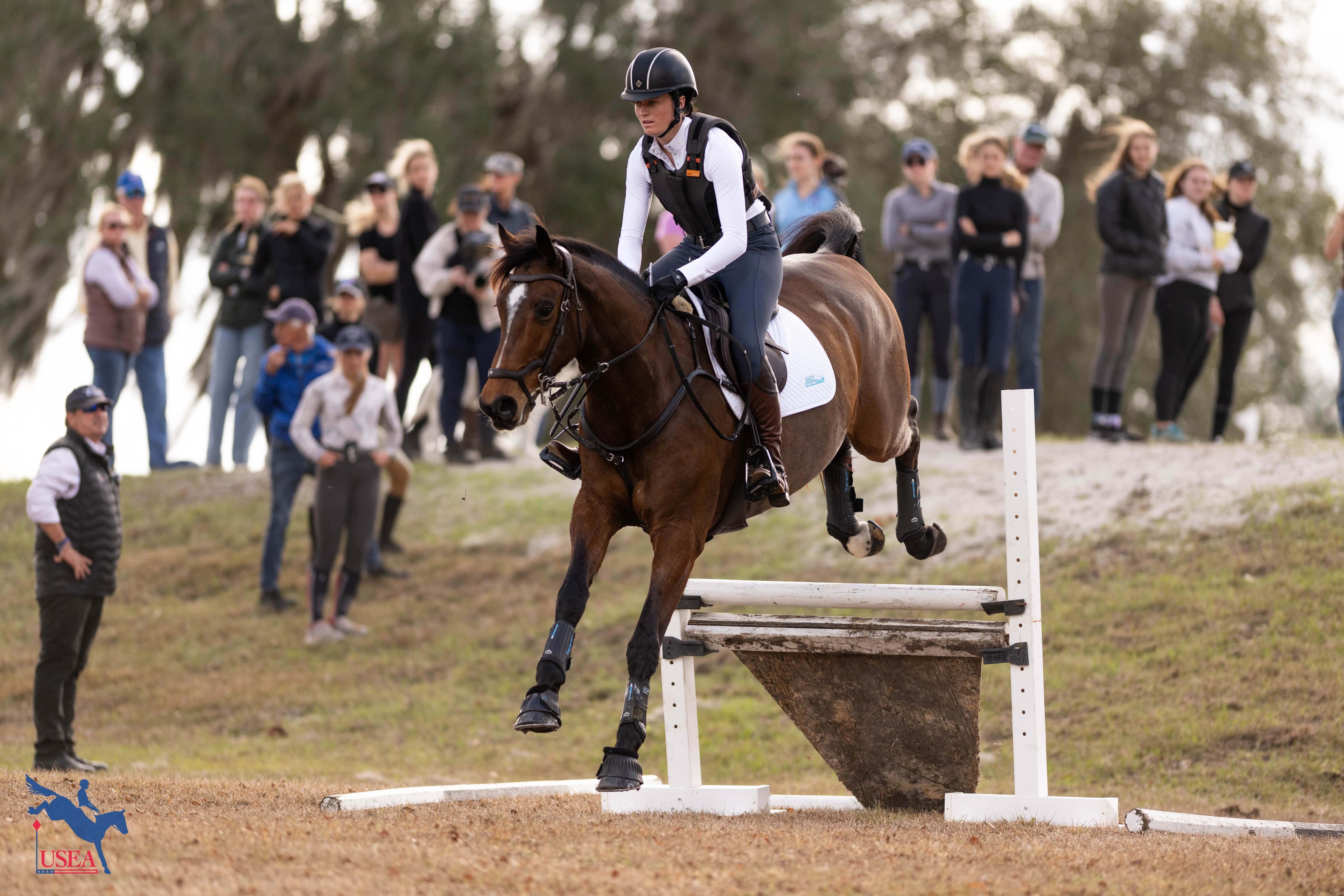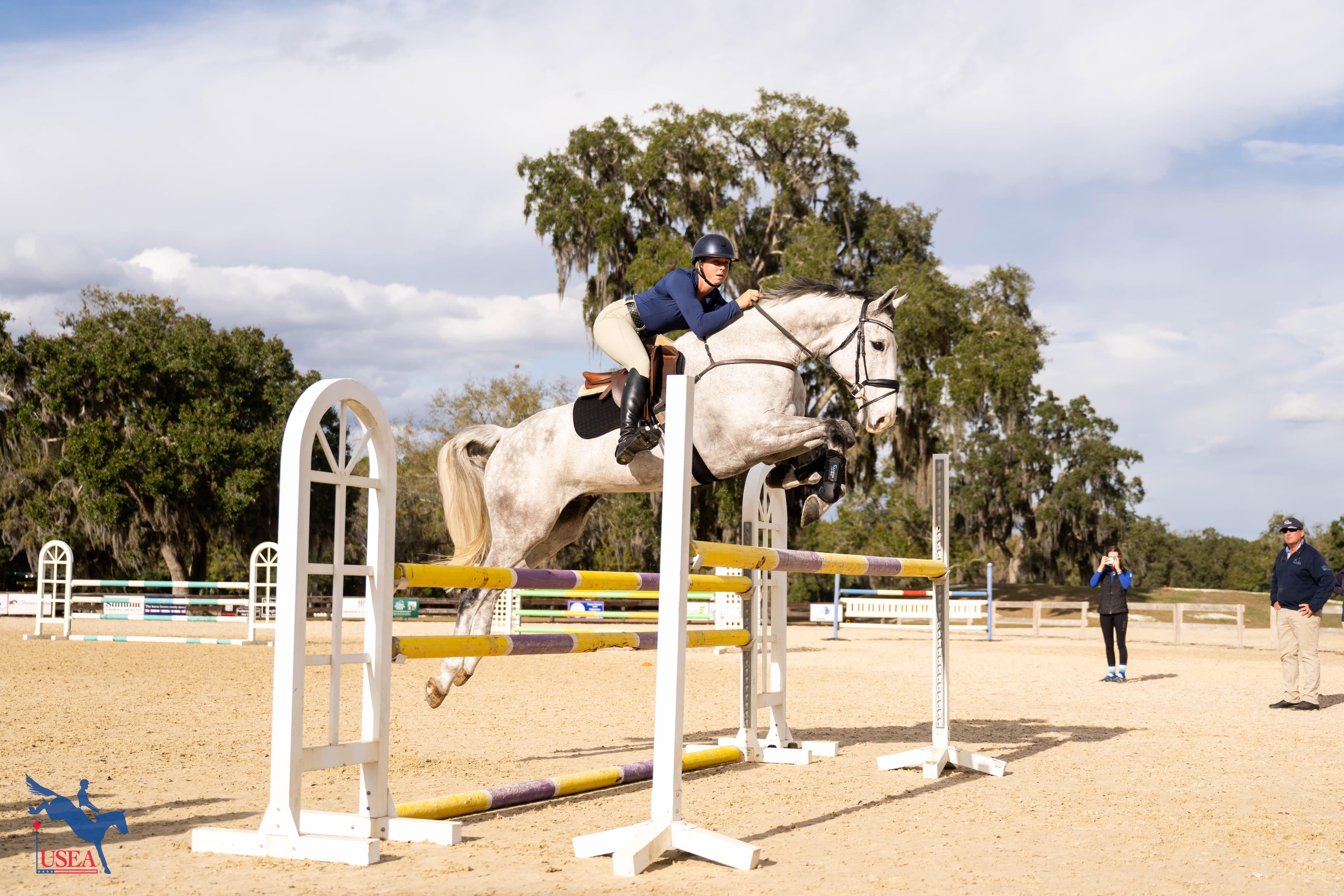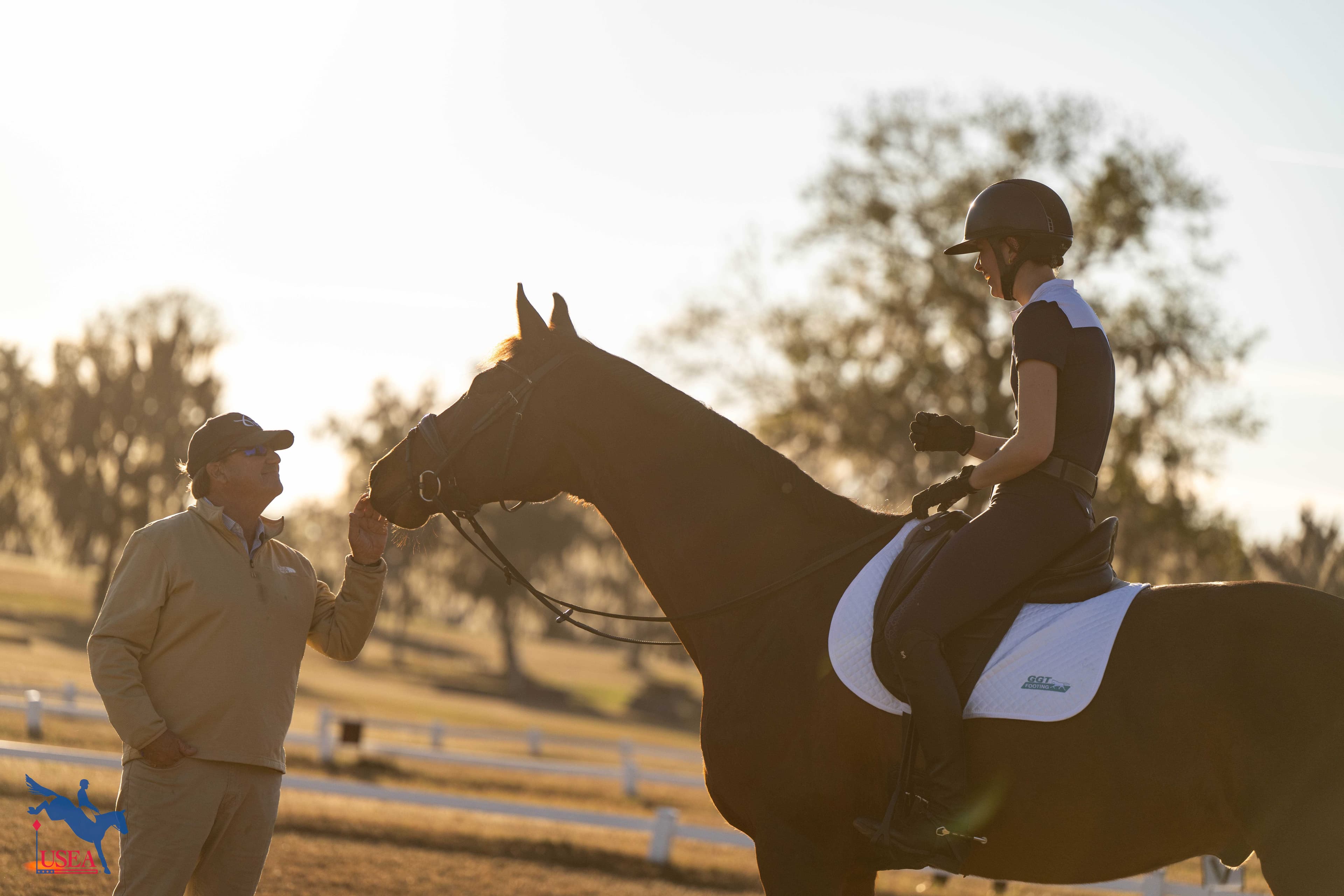Top 10 Tips for Cooling Down with Dr. Jennifer Miller

Whether in the dry heat of the desert or the humid conditions of the east coast, it is especially important during the summer months to be able to cool down your horse quickly and effectively. Dr. Jennifer Miller, who has been a practicing veterinarian in Cave Creek, Arizona for 25 years, explained the importance of cool down. “Training and competing and living day-to-day in super-hot conditions, you have to be very careful when you’re increasing the heat load, either with trot sets or gallop sets or jumping or cross-country schooling – they can all be very demanding on the horse,” she said. “Horses are different – Thoroughbreds usually cool pretty easily, as do the horses that have a better surface area to body mass ratio. Warmbloods tend to be more difficult to cool and to train in hot conditions.”
To help you cool your horse out after a tough workout in hot conditions, Dr. Miller shared her top tips for bringing a horse’s temperature down.
Dr. Miller's Top 10 Tips for Cooling Your Horse
- It is paramount to know your horse and his normal cooling patterns. Knowing how hot your horse can get and how long it takes his temperature to return to normal can help you develop an effective cooling strategy.
- Adjust your strategy based on the weather conditions. Humidity, for example, reduces the cooling ability of horses, so you may need to be more aggressive in your strategy in very hot or humid conditions.
- Monitor your horse’s temperature as you’re cooling them down is a very effective way to know how hot they are to start with and how your cooling process is working. You don’t really know how hot your horse is getting without taking their temperature.
- Reduce your horse’s temperature quickly with ice water – put it on, let it absorb the horse’s body heat, then scrape it off and repeat. Intersperse with short bouts of walking.
- Seek shade. The ambient temperature decreases out of the direct sunlight.
- Use fans to help with the cooling process. Much of the most effective cooling occurs due to evaporation of water or sweat, and fans help with this process, especially in humid conditions.
- Use wearable ice boots to cool the legs as this will cool the blood that circulates through the legs and returns to the heart, ultimately bringing down the core temperature.
- Don’t put your horse away too early. Often riders will think their horse is cool when his core temperature is still elevated.
- Ride early in the morning before the temperature has a chance to heat up for the day. Avoiding the hottest conditions will make your horse more comfortable during exercise.
- Hose off your horse before and during exercise to increase evaporative cooling and help reduce body temperature.














